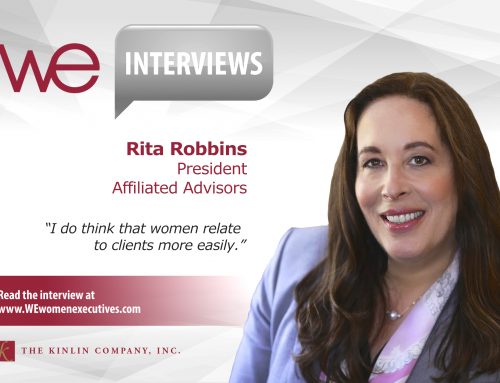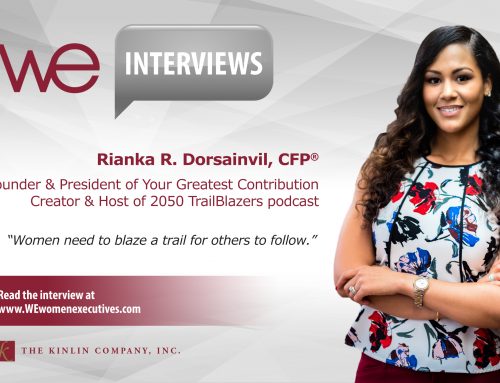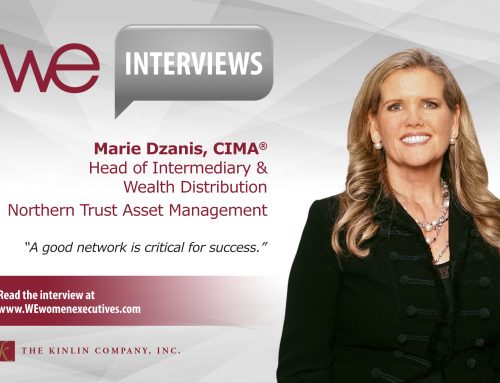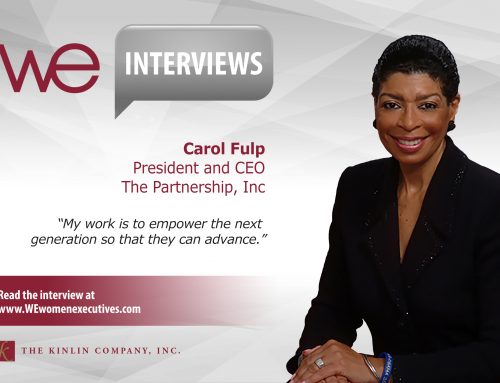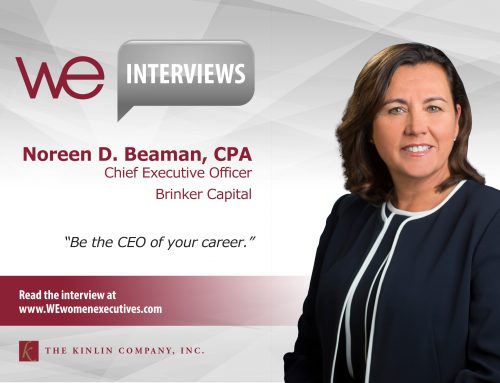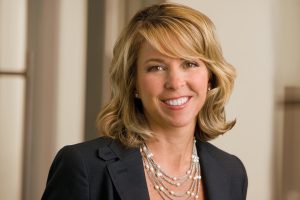 Liz Ann Sonders
Liz Ann Sonders
Senior Vice President
Chief Investment Strategist
Charles Schwab & Co., Inc.
Liz Ann Sonders is the personification of a multi-tasker. Although she is well known as the Chief Investment Strategist for Charles Schwab, Sonders actually serves a dual role, also acting as Chair of the Investment Committee of Windhaven Investment Management, an affiliate of Charles Schwab.
As Schwab’s Chief Investment Strategist, Sonders’ responsibilities require that she take the 30,000-foot view, offering insights and opinions regarding activity in the economy and markets through written pieces, speaking events, video presentations, media appearances and the like. Sonders characterizes her role as an interpreter who seeks to make sense of the connection between the economy, the market and global forces for Schwab’s clients and, in some cases, for outside investors. She concedes that her role is a bit unusual in that she has an executive title but doesn’t manage people (with the exception of her assistant), and she has no P&L responsibility.
Sonders assumed her second role as Chair of the Investment Committee of Windhaven Investment Management a little over a year ago. She joined the team as a senior member, chairing the investment committee and working with several former Schwab colleagues. Today she is involved with day-to-day management of the firm’s client assets, a more traditional money management role like those she occupied at the genesis of her career almost three decades ago.
I recently sat down with Sonders to discuss the evolution of her career and what she has learned over the years. In Part One of our conversation, we talked about what led Sonders to pursue a career in financial services and how that decision has impacted her life.
A fortuitous connection
Sonders is somewhat unique in the financial services field: a woman with nearly 30 years of experience in the business. Starting at a time when there obviously weren’t a lot of female role models or colleagues must have been challenging, I suggested. What drew her to the field in the first place, I asked, and what are some of the changes she’s witnessed over the past three decades?
“First of all, joining this field was more of a fluke than anything else. It wasn’t a desire from a young age nor was it necessarily my focus as an undergraduate. I had a concentration in economics, but I had never thought to myself, ‘I want to work on Wall Street.’ I wasn’t sure what I wanted to do, so I just decided to come to New York. I had considered going to graduate school right away and getting my master’s in political science, but thought, ‘maybe I should just hold off, try working for a bit , get a sense of what I want to do and try to find my unique skillset.
“So I went to New York and pounded the pavement, interviewing everywhere from ad agencies and marketing firms to every variety of Wall Street firm. One of the interviews I had was at Avatar, which was co-run and co-founded by Marty Zweig, with whom I had some familiarity because of his days on Wall Street Week with Louis Rukeyser. During my first interview at Avatar, something just clicked—I liked the people, the size of the firm and its vibe in general. A little voice inside my head said, ‘You should take this.’ That was the first of really only two jobs I’ve had in almost 30 years, but I really fell into the field rather than going at it full-bore.
“I started in 1986, in an era that was unique certainly, because there were not a lot of women. In our firm, however, which was relatively small—the Avatar and Zweig sides together was comprised of about 50 people—there were a decent number of women in senior positions. In fact, I worked for a female portfolio manager, one of the senior traders on the hedge fund side of the business was a woman, and the head of marketing on the Zweig side was also a woman. So although I knew I was entering a male-dominated industry, it didn’t feel that way in my day-to-day work life because that wasn’t the way my firm operated.”
A gender-blind firm
Landing in a firm that employed a large number of women in senior roles at a time when women were difficult to find in the sector at all must have impacted Sonders, I suspected, but I was curious to know whether she agreed. To what extent, I inquired, did she believe her first job had influenced her career and her ability to progress in the field?
“I think it may have helped for several reasons: there were very senior women at the firm, I was young and learning, and there was a desire on the part of the two founding principals to promote from within, regardless of gender—we witnessed it in the women that had moved up in the ranks.
“Overall, the culture of the organization really transcended gender, and I think that explains why—although I was certainly aware of male domination in the industry at large—I felt that I was in my own little unique bubble. That’s one of the reasons why I stayed in the business. I also enjoyed what I was doing, because in the early part of my career, the struggles surrounding the issue of gender equality within the business environment didn’t exist for me.
“I was very lucky. I didn’t go into interviews specifically looking for that balance, I just happened to land at a firm where, reflecting on it in hindsight, there was gender neutrality, which was unusual at the time.”
A strong match for my skillset
Clearly, finding herself in a gender-neutral financial services firm offered Sonders the opportunity to learn and develop her skills at a critical point in her career. But did she feel, I wondered, that there was anything in particular about her background that had really propelled her forward and allowed her to get to where she is today?
“I don’t think I would have had anywhere near the success that I’ve had if my role were more on the management side of things, because I don’t believe I would have been a particularly good manager of a large organization, in terms of people or processes.
“I think the success that I’ve had is a function of my strengths, which are very strong common sense and very good gut instincts. I think I’m a good analyst and judge of investor behavior, and I think behavior as it relates to stock market investing is almost more crucial than any of the traditional fundamentals. I’ve also had phenomenal unofficial mentors, from whom I’ve learned a great deal.”
A series of good mentors
Sonders’ reference to mentors piqued my curiosity, so I asked her to tell me more. Where were these mentors, I inquired, and were they found organically or through formal programs within the organizations where she worked?
“None of them came through formal programs. When I think about the four or so most important people in my business life, interestingly all four of them were men.
“The first two would be Marty Zweig and Ned Babbitt. Ned was the head of Avatar, and he and Marty founded the collective firm together, although there were separate sides. Avatar was the institutional money management side and Marty’s side was the hedge fund, the mutual funds, and the newsletter. Ned was a mentor in a fatherly kind of way, and I worked directly for him. He was very nurturing and kind and taught me about the business. Marty, on the other hand, was this iconic figure that became wildly famous when he called the crash on Wall Street Week the Friday night before the actual crash. So here was this larger-than-life character that I got to work with and observe every day. I studied how he thought about and analyzed markets and the economy, as well as the relationship between the two.
“Quite honestly, if you asked Marty whether he thought he was a mentor to me, I don’t know if he would say yes. I made myself his mentee without necessarily telling him that I was doing so. I just became an obsessive observer of everything he did and said, and because the firm was small, I had that opportunity. I mentally honed in on him as it related to me learning the business.
“Ned, on the other hand, was my boss, so he mentored me in a more traditional manner, although that’s not how we formally defined it. But I learned a tremendous amount from him. For me, mentors are simply those from whom I’ve learned a tremendous amount and who have guided me in my career.”
A fortunate placement
Sonders clearly had a very positive career development experience at Avatar, but how has she fared with respect to the gender balance issue since leaving that firm, I queried. Has she seen changes for the better and, given her high profile position, does she feel any obligation to press the case for greater gender equity in the financial services sector?
“I happen to work at two firms: Schwab, which is obviously the much larger organization, and Windhaven, which is an affiliate of Schwab. Both organizations are very gender balanced. I don’t know the exact statistics, but when I sit in our annual Schwab senior leadership meetings, it is not a significantly male-dominated room by any stretch; not only at the sub-executive committee level, but also within the executive committee.
“I came to Schwab via an acquisition. When I left Avatar, I joined US Trust, which was subsequently acquired by Schwab ten months later. So I can’t say that I joined Schwab because I thought it was a great place for a woman to work, though I certainly found that to be the case. Even at the time Schwab acquired US Trust in 2000, there was great diversity reflected in senior leadership meetings—this is not a new initiative on the part of the company.
“Some of the greatest women I know, and some of my best friends who are working women, are in this organization or have been in the past, so I’ve had the good fortune to have worked at two places where chauvinism is not a factor.”
A desire for integration
Given that Sonders has realized such success in finding gender balance in her career, I couldn’t help but ask how she had managed the question of work-life balance that comes up so frequently with respect to women in the workplace.
“Maybe it’s just the way I interpret the semantics of the word, but I rarely use the word balance when I talk to people about work-life challenges. Balance often suggests that when you are giving your all to one side, the other takes a hit. Instead I use the word integration because I think it’s more accurate. I feel that I’ve integrated my work life and my personal life, rather than balancing two opposing forces. I do always find it interesting that when I read or hear an interview with a male in a very senior role, the question of work-life balance never comes up.
“Admittedly, a critical thing happened in my life that allowed me to do what I’ve done since having children. We were living in New York City when we had our first child. I wasn’t traveling every week like I am right now, so that made the decision to continue working very easy. I walked to work every day and could come home and see the baby at will.
“Then we decided not to raise kids in the city and moved to Connecticut, as many do. Unfortunately, our nanny, who was wonderful, refused to relocate from her home in Brooklyn, so we hired a new nanny from Utah, and after a few months, she got homesick and left as well. I was talking with my mom, lamenting what I thought might be a revolving door of nannies, and she said, ‘We’ll come up.’ My parents lived outside of Philadelphia at the time—dad was semi-retired and mom was still working—and I thought she meant, ‘We’ll come up and cover for you while you look.’ But what she was really saying was, ‘We’ll do this.’ So they quit their jobs, sold their house, bought a home in Connecticut, and were our full-time nannies for 11 years. And if they were sitting here, they would say that was the best thing that ever happened in their lives.
“It was certainly the best thing that happened in my life as well as the lives of my husband and children. There’s no question that my parents’ decision affected my life today; both the path I took and my ability to focus on it. I give them a tremendous amount of credit; their help made all the difference in the world because it eliminated the day-to-day concern of, ‘Am I doing the right thing? Are my kids getting the nurturing and attention they need?’ I had none of those worries. I missed my children when I was at work or travelling, but I was never concerned about their welfare.
“My parents often joke that they had to give up some of their grand parenting rights (like spoiling their grandchildren) in order to help us raise them. Our kids are teenagers now, so although my parents are still very involved in our lives, they’re no longer the full-time help. But the expanded family unit we created worked wonders for us all.
“There are lots of other ways that I manage the demands of work and family and my kids have never known anything different. My husband and I have always told them that parents can both work and raise children—that’s certainly the message I’ve given to my daughter, and I’m glad she has had the opportunity to see me modeling that behavior.”

